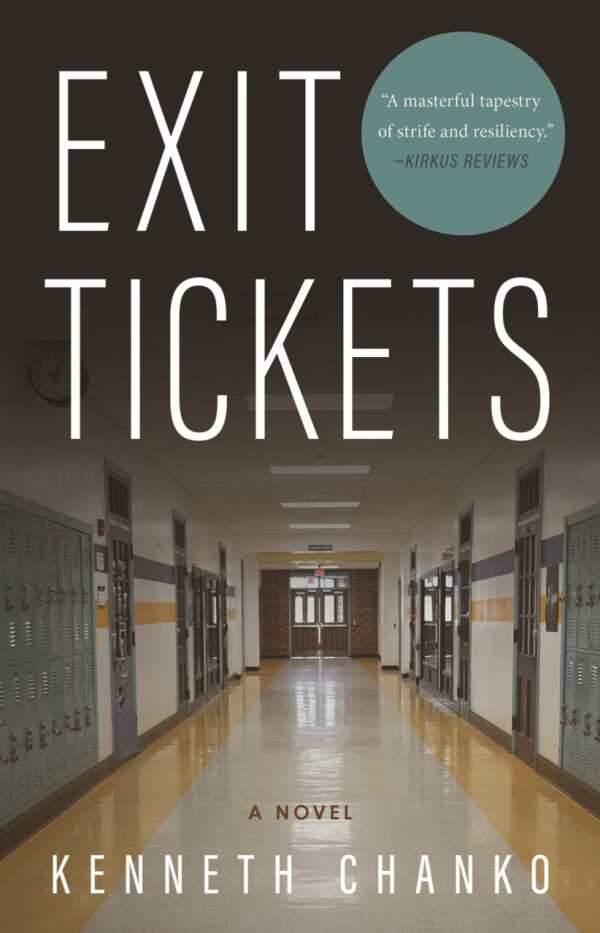Exit Tickets
Exit Tickets is a tense, grounded novel about human struggles in the public school system.
In Kenneth Chanko’s intriguing novel Exit Tickets, teachers and students navigate feelings of grief and obsession.
Martin, a first-year teacher who mourns his sister, exhibits self-destructive habits and emotional turbulence, spending his nights drinking at bars. He also struggles to put together lesson plans for his disinterested students. Kandra, though she’s volatile, becomes Martin’s star student. She has a tumultuous home life, and as the year continues, her obsession with Martin grows. She engages in self-injury and fights with other students.
Martin’s and Kandra’s contrasting perspectives highlight the dangers of blurred boundaries, and the chapters devoted to them achieve psychological depth. The book’s secondary characters include the teachers and students around them; their development is lighter. Still, their storylines intersect with Martin’s and Kandra’s, evincing the broader school ecosystem they navigate.
Encompassing the school year, the novel moves apace of holidays and daily challenges and accelerates as Martin and Kandra’s interpersonal crisis converges with administrative ones. In addition to Martin and Kandra, multiple other people are the focus of individual chapters, but the transitions between different scenes are quite emotive and natural, with chapters ending on one person’s actions or feelings and the next picking up with the effects of their behaviors on another person. Kandra, for instance, adds an instance of inappropriate touch to a writing assignment; the next chapter starts with Martin reading her work. Sexual sequences involving staff members distract from the book’s progression, though. They also jar with the book’s primary focus on Martin and Kandra’s student-teacher dynamics, no matter how fraught.
Still, the book’s use of alternating perspectives helps it explore the nuances and moral ambiguities of Martin’s and Kandra’s choices without excusing their poor decisions. Kandra’s fixation on Martin, and his attempts to mentor her despite the rising dangers, highlight the consequences of misapplied empathy and blurred professional boundaries. Their arcs mirror one another’s well, resulting in plenty of tension, while the secondary characters flesh out the background and broaden the narrative’s scope, as when a rough and tough gym teacher loses his composure with a student who’s known for mischief, revealing how turbulent the environment is on the whole.
People’s conversations are written in a way that captures classroom and staff room rhythms well, pulling forth instances of casual and witty banter among colleagues and classmates. The story’s urban and domestic settings are fleshed out via sensory cues, such as the buzz of fluorescent lights and the noise of a crowd. Indeed, the prose is immersive, and more so in the sections that focus on heightened emotions, including grief, obsession, and interpersonal tension. The story moves toward a poignant ending in which the central issues are resolved in a credible and satisfying manner.
Two people’s lives and goals change with the seasons in Exit Tickets, an intimate novel about a fledgling teacher’s grief and his star student’s obsession with him.
Reviewed by
Brandon Pawlicki
Disclosure: This article is not an endorsement, but a review. The publisher of this book provided free copies of the book and paid a small fee to have their book reviewed by a professional reviewer. Foreword Reviews and Clarion Reviews make no guarantee that the publisher will receive a positive review. Foreword Magazine, Inc. is disclosing this in accordance with the Federal Trade Commission’s 16 CFR, Part 255.

